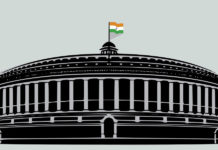Retrospective amendments to fiscal statutes are undermining faith in the rule of law, argues Pradeep Dinodia, the managing partner of
SR Dinodia & Co Chartered Accountants
The constitution of India contains specific provisions for the judicial review of legislation. It is unlike the American constitution where the Supreme Court has assumed extensive powers of legislative review under the cover of a widely interpreted due process of law in the 5th and 14th amendments. As far as the Indian constitution is concerned, there are four well-defined institutions; the legislature, the executive, the judiciary and the press. Constitutional democracy, which we have in India, recognizes the importance of these institutions and the specific roles, functions and powers they hold in society.

Managing partner
SR Dinodia & Co Chartered Accountants
The legislature is supreme in so far as it legislates and enacts a law. The executive headed by the president of India, the union cabinet, and the state governments, have to implement the laws enacted by parliament and the state legislatures. Ideally, these institutions should maintain their independence and autonomy, without any interference in other realms, the only exception being when there is a grave danger to society at large.
You must be a
subscribersubscribersubscribersubscriber
to read this content, please
subscribesubscribesubscribesubscribe
today.
For group subscribers, please click here to access.
Interested in group subscription? Please contact us.





















